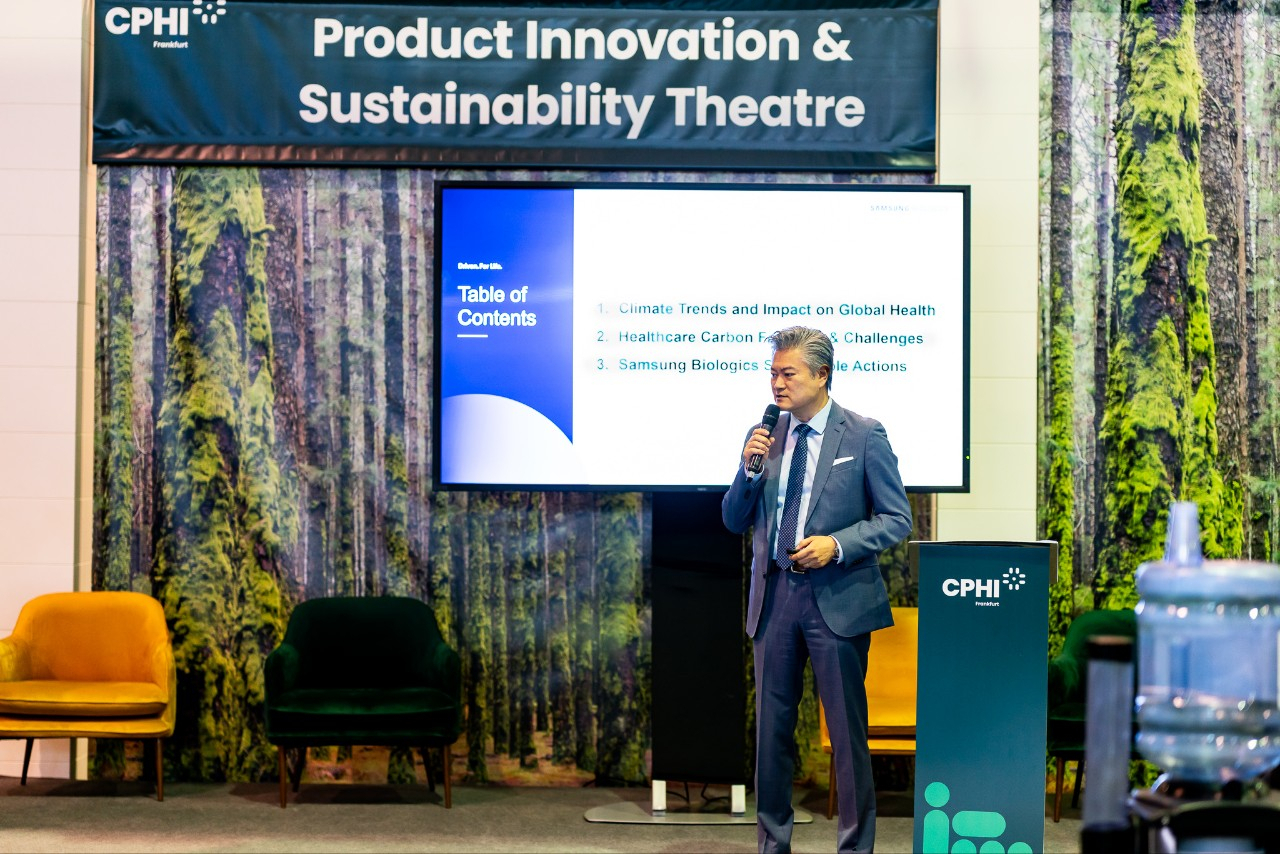State spending on strategic industries to surge 43% next year
 |
|
James Choi, executive vice president at Samsung Biologics, speaks on partnering with contract development and manufacturing organizations at the 2022 Convention on Pharmaceutical Ingredients Worldwide, in Frankfurt, Germany, Wednesday. (Samsung Biologics)
|
FRANKFURT, Germany — Samsung Biologics’ top official on Wednesday stressed the importance of contract development and manufacturing organization companies’ efforts to reduce greenhouse gas emissions and how the South Korean CDMO giant is working toward achieving environmental friendliness.
“CDMOs play a huge part because we provide the manufacturing and logistics for a lot of (biopharmaceutical) companies and we have to continue to innovate together,” said James Choi, executive vice president of Samsung Biologics, in his presentation on partnering with CDMOs for a sustainable future at the 2022 Convention on Pharmaceutical Ingredients Worldwide in Frankfurt, Germany.
Pointing out that about 70 percent of biopharmaceutical companies’ greenhouse gas emissions come from Scope 3, which refers to indirect emissions, Choi said CDMOs must limit global warming. Scope 1 emissions refer to emissions directly released into the atmosphere as the result of a set of activities by the company. Scope 2 emissions are emissions from the generation of purchased energy.
“We are looking at many ways to improve our carbon footprint, starting with Scope 1 and 2 by using energy optimization solutions, converting into 100 percent renewable energy and also incorporating (power purchase agreements) as they become more available across Asia,” he said.
According to Samsung Biologics’ environmental, social and governance report, the company reduced Scope 1 and 2 emissions by 32.3 percent in 2021. The CDMO firm has set the goal of cutting down Scope 3 emissions 25.7 percent by 2026.
Building upon Choi’s remarks at the CPHI, Samsung Biologics took further action on the following day. The CEOs of AstraZeneca, GSK, Merck KGaA, Novo Nordisk, Roche, Samsung Biologics and Sanofi on Thursday announced their joint action to achieve near-term emissions reduction targets and speed up the goal of “net zero health systems.”
The companies said that the leading players in the global health sector have come together for the first time to reduce greenhouse emissions through the Sustainable Markets Initiative Health Systems Task Force, a public-private partnership launched last year at the 26th United Nations Climate Change Conference, known as COP26.
Samsung Biologics is the only Korean company in the SMI Health Systems Task Force. The SMI, which is led by the UK’s King Charles III, is a global network of CEOs across different industries collaborating to build sustainable economies for the future.
By Kan Hyeong-woo (hwkan@heraldcorp.com), Korea Herald correspondent
(KOREA HERLAD)
